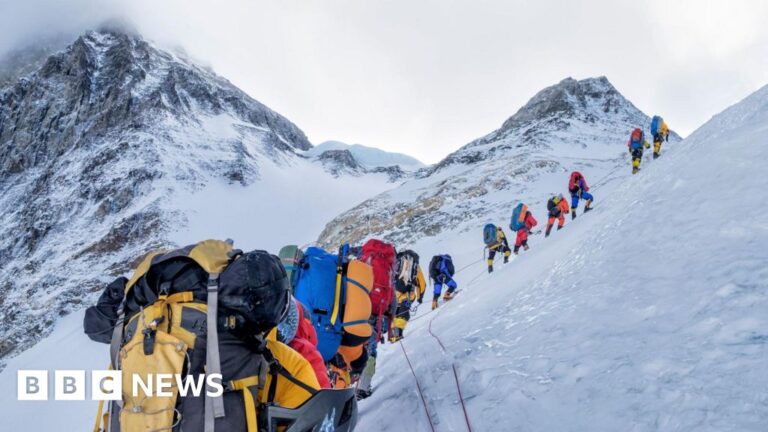The price of climbing Mount Everest will soon rise for the first time in almost a decade, as Nepal announces a sharp increase in permit fees.
From September, those looking to climb the world’s highest mountain during peak season will have to pay $15,000 (£12,180), an increase of 36% on the long-standing fee of $11,000, have officials announced Wednesday.
Fees for those wanting to climb outside of the April to May peak period will also increase by the same percentage, meaning they will cost $7,500 from September to November and $3,750 from December to February.
Revenue from permit fees is a key source of income for Nepal, with mountaineering and trekking contributing more than 4% to the country’s economy.
Mountaineering experts often criticize the Nepalese government for allowing too many climbers on Everest, with around 300 mountain access permits issued each year.
It is unclear whether the price rise, under discussion since last year, will slow demand.
“The fees (permit fees) have not been reviewed for a long time,” Narayan Prasad Regmi, director general of the Ministry of Tourism, told Reuters. “We have updated them now.”
Regmi did not specify how the additional revenue would be used.
In April 2024, Nepal’s Supreme Court ordered the government to limit the number of mountaineering permits issued for Everest and other peaks, saying the capacity of the mountains “must be respected.”
The preliminary order does not, however, set a maximum number.
Facing concerns about overcrowding on Everest and climbers queuing in dangerous conditions to reach the summit, the Nepalese army in 2019 began conducting an annual cleanup of the mountain, which is often described as the highest discharge of the world.
During this period, according to the army, at least five clean-up operations collected 119 tonnes of waste, 14 human corpses and some skeletons, but an estimated 200 more bodies remain on the mountain.
Nepal is home to eight of the world’s 14 highest mountains, including Everest.

